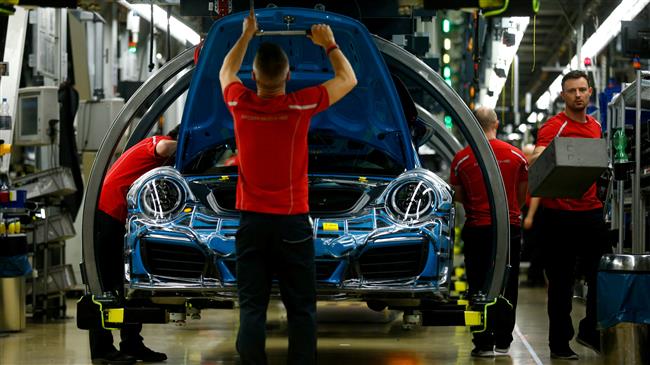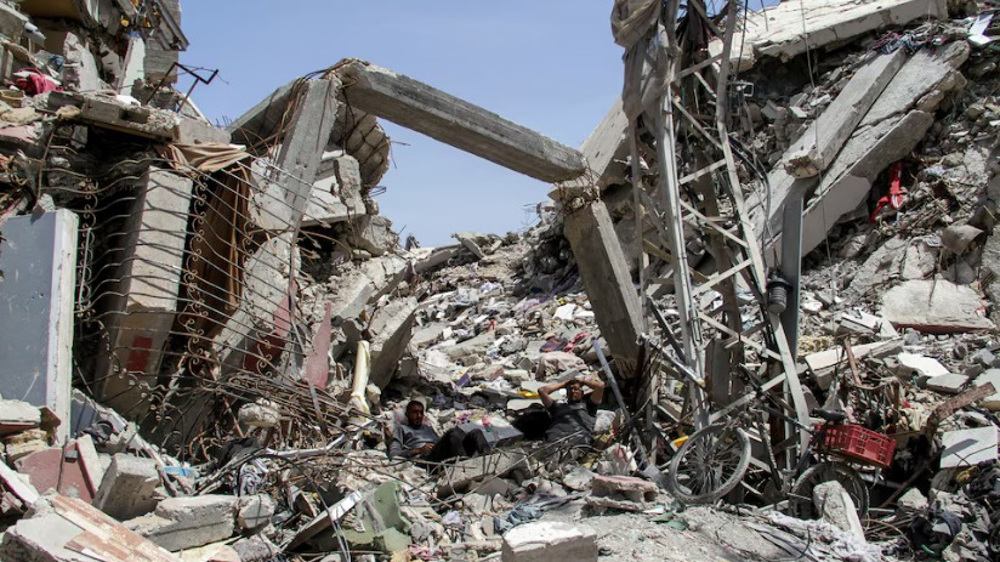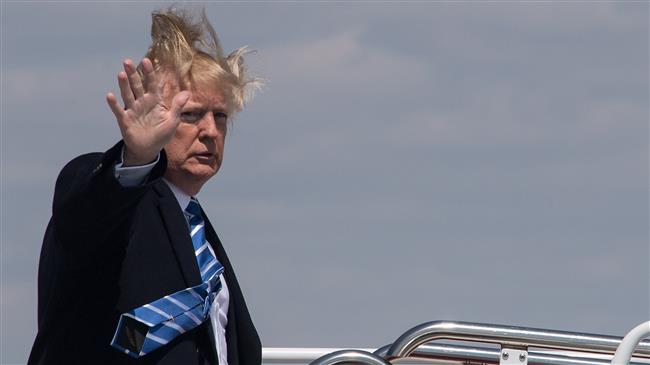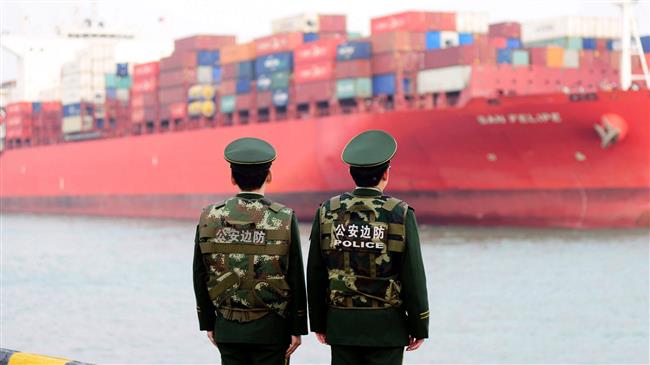German business morale drops as trade dispute ramps up
A leading German research institute says business confidence in the country fell in June to its lowest in more than a year, as fears grow over a looming full-blown trade war across the world and political infighting over the huge refugee crisis darkens German's economic outlook.
The Munich-based Ifo economic institute said on Monday that German’s business climate index shed 0.5 points and slumped to 101.8 points in June, the lowest level since May 2017.
The research institute said business activity had declined in all four sectors measured in its survey, including manufacturing, services, trade and construction.
"The tailwind enjoyed by the German economy is calming down," Ifo president Clemens Fuest said in a statement.
Ifo’s survey showed that business leaders in the country were less satisfied with their current business situation and their expectations for the future were mixed.
"The boom is over ... The discussion about a trade war ...is weighing on the mood. Uncertainty has increased slightly," Ifo economist Klaus Wohlrabe told Reuters.
The Ifo reading is the latest in a series of frustrating data for Europe's biggest economy that has fuelled concerns of a slowdown after a strong 2017.
Last week, the research center drastically slashed its German growth forecast for 2018 from 2.6 per cent to 1.8 per cent.
"The number of dark clouds in the German economic sky has clearly increased," said ING bank chief economist Carsten Brzeski. "The most threatening factors are gradually escalating trade tensions, higher oil prices and, very recently, turbulences in domestic politics."
The news comes as German executives are bracing for the impact of a full-blown trade war with the US after President Donald Trump levied hefty tariffs on metal imports from the European Union in March.
The 28-member bloc hit back on Friday with retaliatory tariffs on iconic US goods worth 3.2 billion dollars, including jeans and motorcycles, a move that prompted Trump to threaten to impose a 20 percent tariff on all European cars entering the US.
The German government is also facing pressure to persuade its European peers before a main June 28-29 summit to agree to share out refugees more evenly within the EU.
German Chancellor Angela Merkel has been given by her conservative allies at home, including Bavaria’s Christian Social Union (CSU), an ultimatum to come up with a convincing European plan to reduce refuge arrivals in the country, otherwise they will go it alone from the beginning of July and start tightening Germany’s borders.
The Monday survey by Ifo is based on a poll of some 9,000 firms and executives in Germany, which were asked to give their assessments of the current business situation and their expectations for the next six months.
VIDEO | Funeral of mother, son killed in Israeli strike on south Lebanon
VIDEO | The Rafah issue
Target Israel and we’ll target you: US senators warn ICC
Ball in Israel's court over Gaza ceasefire, Hamas chief tells Iran FM
Grossi says proposed ‘concrete practical measures’ to boost Iran-IAEA cooperation
UNICEF warns Rafah invasion to put 600,000 children at risk of catastrophe
Israel signals rejection of ceasefire proposal accepted by Hamas
US-Israeli espionage cell dismantled in Yemen
















 This makes it easy to access the Press TV website
This makes it easy to access the Press TV website